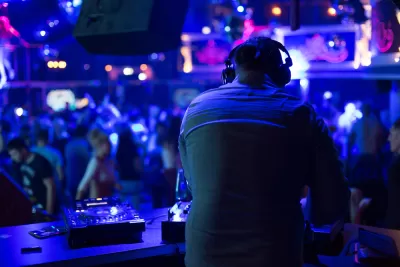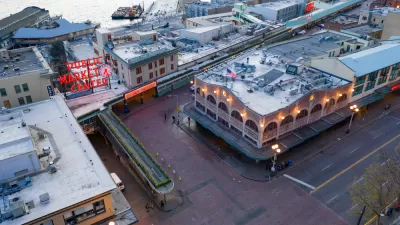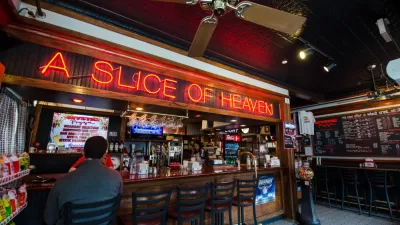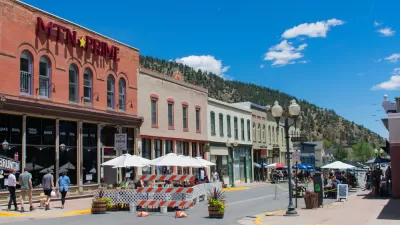The first chapter of a forthcoming report form VibeLab, a nightlife consultancy firm, makes a variety of pertinent suggestions for facilitating al fresco events and safely regulating crowds in a new context.

The widespread closure of bars, venues, and clubs as a coronavirus risk reduction measure has left patrons, entertainment industry employees, nightlife business owners, and performers without safe ways to gather. Short of any industry-wide guidelines for reopening operations, nightlife consultancy VibeLab recently published the first chapter of a Global Nightlife Recovery Plan titled "Open-air Nightlife And COVID-19: Managing Outdoor Space & Sound."
"Future installments will focus on a host of pandemic-fueled problems, including finding financial supports for workers and owners of venues that can’t reopen and what the future of dance and live music clubs might look like. Its goal is not just to save a threatened part of cities’ cultural and economic life, but to make some longer-term improvements in relations between nightlife businesses and citizens, and how public spaces are managed and monitored," reports Feargus O'Sullivan.
There is no returning to indoor nightlife as we know it without a vaccine, says O'Sullivan. This first installment of VibeLab's recovery plan suggests that outdoor events are the way to move forward with large-scale entertainment. Better to have al fresco, regulated gatherings with safety practices than to allow unregulated indoor gatherings to arise out of necessity.
Outdoor events raise concerns about noise regulation, among other headaches. "When urban nightlife — in all its noisy, unruly glory — migrates out of the windowless buildings that once contained it, new problems emerge," reminds O'Sullivan. "The presence of police officers at public gatherings can escalate rather than diffuse tension." The VibeLab report excerpt suggests the consideration of alternative forms of party police, pointing to alternative forms of law enforcement like Amsterdam's Square Hosts who keep the peace in bustling nightlife areas.
VibeLab's full report is forthcoming and is expected to be released in September.
FULL STORY: The Nightlife Rescue Plan That Could Save Your City’s Scene

Alabama: Trump Terminates Settlements for Black Communities Harmed By Raw Sewage
Trump deemed the landmark civil rights agreement “illegal DEI and environmental justice policy.”

Study: Maui’s Plan to Convert Vacation Rentals to Long-Term Housing Could Cause Nearly $1 Billion Economic Loss
The plan would reduce visitor accommodation by 25% resulting in 1,900 jobs lost.

Planetizen Federal Action Tracker
A weekly monitor of how Trump’s orders and actions are impacting planners and planning in America.

This Toronto Suburb Has More Bus Riders Than Columbus, Ohio
Brampton, Ontario used gradual improvements in service to prove that if you build it, they will ride.

Paris Bike Boom Leads to Steep Drop in Air Pollution
The French city’s air quality has improved dramatically in the past 20 years, coinciding with a growth in cycling.

Why Housing Costs More to Build in California Than in Texas
Hard costs like labor and materials combined with ‘soft’ costs such as permitting make building in the San Francisco Bay Area almost three times as costly as in Texas cities.
Urban Design for Planners 1: Software Tools
This six-course series explores essential urban design concepts using open source software and equips planners with the tools they need to participate fully in the urban design process.
Planning for Universal Design
Learn the tools for implementing Universal Design in planning regulations.
Smith Gee Studio
Alamo Area Metropolitan Planning Organization
City of Santa Clarita
Institute for Housing and Urban Development Studies (IHS)
City of Grandview
Harvard GSD Executive Education
Toledo-Lucas County Plan Commissions
Salt Lake City
NYU Wagner Graduate School of Public Service





























